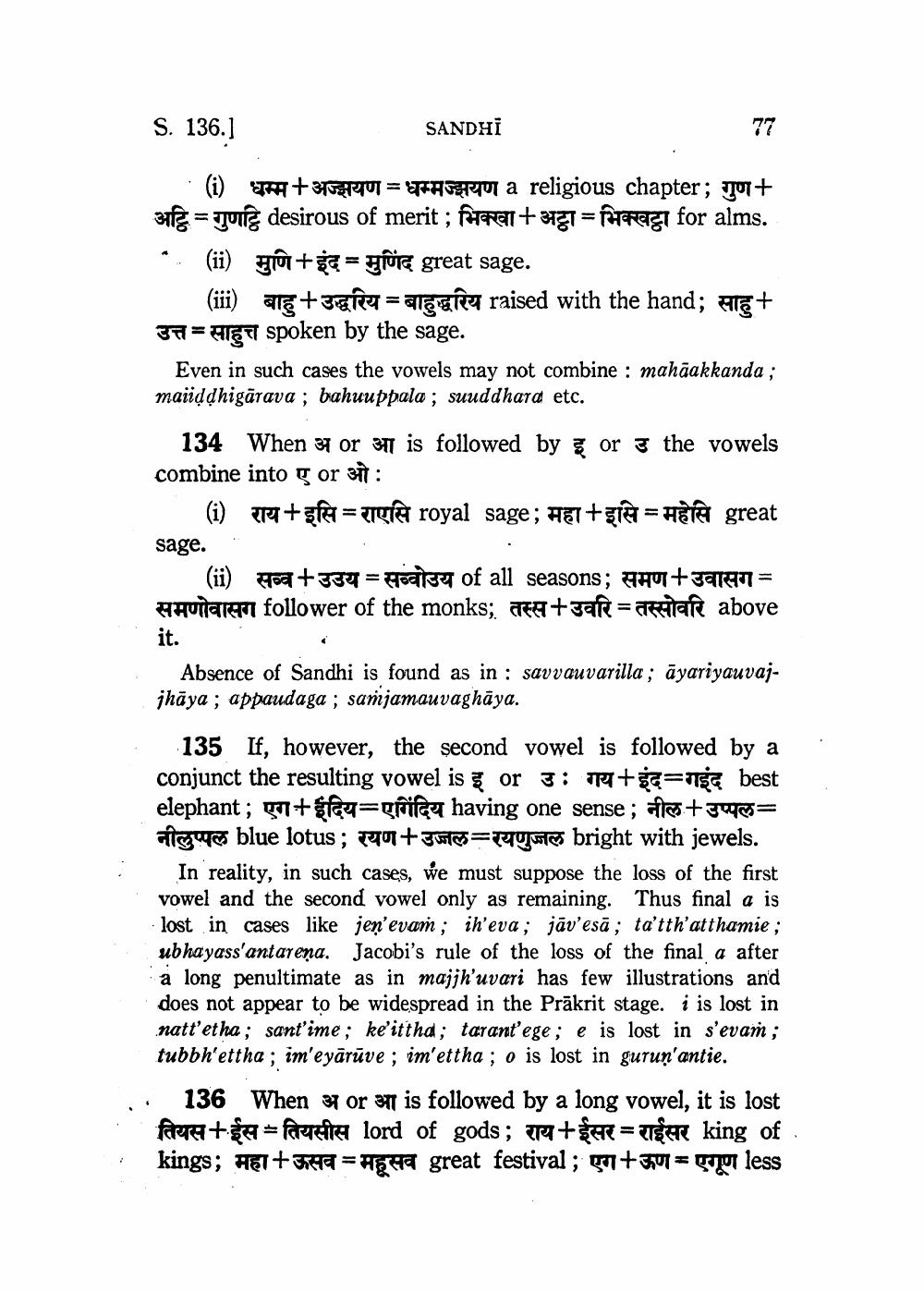________________
S. 136.]
SANDHI
(i) धम्म+अज्झयण = धम्मज्झयण a religious chapter; गुण+ अटि = गुणहि desirous of merit ; भिक्खा +अट्ठा भिक्खट्ठा for alms. ... (ii) मुणि+इंद = मुणिंद great sage.
(iii) बाहु+उद्धरिय = बाहुद्धरिय raised with the hand; साहु+ उत्त = साहुत्त spoken by the sage.
Even in such cases the vowels may not combine : mahāakkanda ; maiidąhigārava ; bahuuppala ; suuddhara etc.
134 When अ or आ is followed by इ or उ the vowels combine into ए or ओ :
(i) राय+इसि = राएसि royal sage; महा +इसि = महेसि great sage..
(ii) सव्व+उउय = सव्वोउय of all seasons; समण+उवासग= समणोवासग follower of the monks; तस्स+उवरि = तस्सोवरि above
it.
___Absence of Sandhi is found as in : savvauvarilla ; āyariyauvajjhāya ; appaudaga ; samjamauvaghāya.
135 If, however, the second vowel is followed by a conjunct the resulting vowel is s or उ: गय+इंदगइंद best elephant; एग+ ईदिय-एगिदिय having one sense ; नील+उप्पल=
नीलुप्पल blue lotus; रयण+ उजल-रयणुजल bright with jewels. . In reality, in such cases, we must suppose the loss of the first
vowel and the second vowel only as remaining. Thus final a is lost in cases like jen'evam ; ih'eva; jāv'esā; ta'tth'atthamie ; ubhayass'antarena. Jacobi's rule of the loss of the final a after a long penultimate as in majjh'uvari has few illustrations and does not appear to be widespread in the Prākrit stage. i is lost in natt'etha; santime; ke'ittha; tarant'ege ; e is lost in s'evas;
tubbh'ettha ; im'eyārūve ; im'ettha ; o is lost in guruņ'antie. .. 136 When अ or आ is followed by a long vowel, it is lost . तियस+ईस = तियसीस lord of gods; राय+ ईसर = राईसर king of .
kings; महा+ऊसव-महूसव great festival; एग+ऊण - एगूण less




